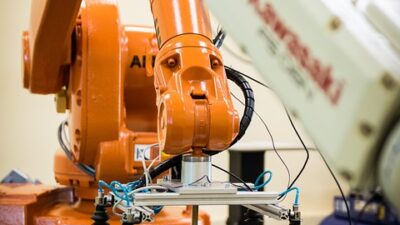Deep learning, a subset of artificial intelligence (AI) and machine learning (ML), has revolutionized numerous fields by enabling machines to process and analyze vast amounts of data with remarkable efficiency and accuracy. This article explores the transformative applications of deep learning in two prominent sectors: healthcare and finance. By harnessing this technology, both industries have seen significant improvements in outcomes, efficiency, and predictive capabilities.
Deep Learning in Healthcare
1. Medical Imaging
One of the most significant applications of deep learning in healthcare is in medical imaging. Convolutional Neural Networks (CNNs) have shown exceptional proficiency in analyzing images such as X-rays, MRIs, and CT scans. These algorithms can automatically identify anomalies, such as tumors, fractures, and other conditions, often with a level of accuracy comparable to or exceeding human specialists. For instance, Google’s AI has been utilized to detect breast cancer in mammograms more accurately than radiologists, potentially leading to earlier diagnoses and better patient outcomes.
2. Drug Discovery
Deep learning methods are streamlining the drug discovery process, which traditionally involves expensive and time-consuming research. By analyzing extensive datasets of molecular structures and their interactions, deep learning algorithms can predict how new drugs will behave in the body, thus accelerating the development of new therapies. Companies like Atomwise are using AI to screen millions of compounds quickly, identifying potential candidates for further testing.
3. Personalized Medicine
Personalized medicine is the concept of tailoring medical treatment to the individual characteristics of each patient. Deep learning facilitates this by analyzing genetic information, lifestyle factors, and clinical data to make customized treatment recommendations. For example, AI models can predict how a cancer patient might respond to certain chemotherapy drugs based on their genetic profile, significantly improving treatment efficacy.
Deep Learning in Finance
1. Fraud Detection
The finance sector is increasingly utilizing deep learning for fraud detection and prevention. Traditional methods often fall short due to the sophisticated and evolving tactics employed by fraudsters. Neural networks can analyze transaction patterns, learning to recognize normal behavior and identifying anomalies that suggest fraudulent activity. Companies like PayPal and Mastercard have deployed deep learning systems that can flag suspicious transactions in real time, reducing financial losses.
2. Algorithmic Trading
Deep learning has transformed algorithmic trading, enabling firms to analyze market data and execute trades at speeds and frequencies beyond human capability. By utilizing recurrent neural networks (RNNs), firms can identify patterns in historical price movements, news sentiment, and economic indicators, facilitating informed trading decisions. This has allowed hedge funds and institutional investors to optimize portfolios and maximize returns.
3. Credit Scoring
Credit scoring traditionally relied on blunt indicators such as credit history and income levels. With deep learning, lenders can now assess an applicant’s creditworthiness using a broader range of data, including non-traditional sources like social media activity and transaction data. This approach not only improves risk assessment but also expands access to credit for individuals who might otherwise be overlooked by traditional models.
Challenges and Ethical Considerations
While the applications of deep learning in healthcare and finance demonstrate tremendous potential, they also raise challenges and ethical considerations. The reliance on large datasets can lead to concerns about privacy and data security. In healthcare, the use of sensitive patient information necessitates strict adherence to regulations like HIPAA. In finance, the implications of biased algorithms or decisions can lead to unfair treatment of individuals.
Moreover, there is an ongoing debate about the transparency of deep learning models, often criticized as "black boxes" due to their complexity. Ensuring that AI systems are interpretable and trustworthy remains a critical challenge that must be addressed to fully realize the benefits of deep learning.
Conclusion
Deep learning’s applications in healthcare and finance highlight its transformative potential across various domains. By improving diagnostic accuracy, streamlining drug discovery, enhancing fraud detection, and optimizing trading strategies, deep learning is paving the way for innovation and efficiency. As researchers and practitioners continue to tackle the associated challenges, the future promises even more breakthroughs, driving both industries toward improved outcomes and operational excellence. As we look ahead, fostering a responsible approach to AI will be essential in navigating the ethical landscape that accompanies such powerful technologies.



